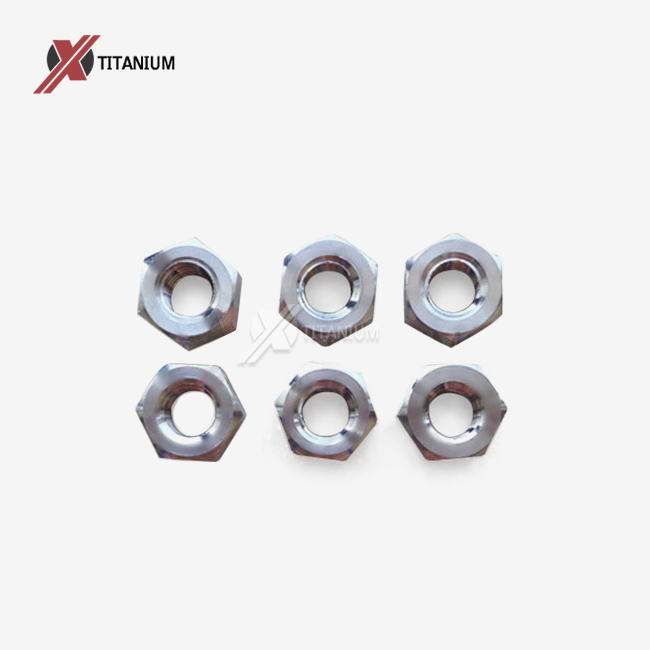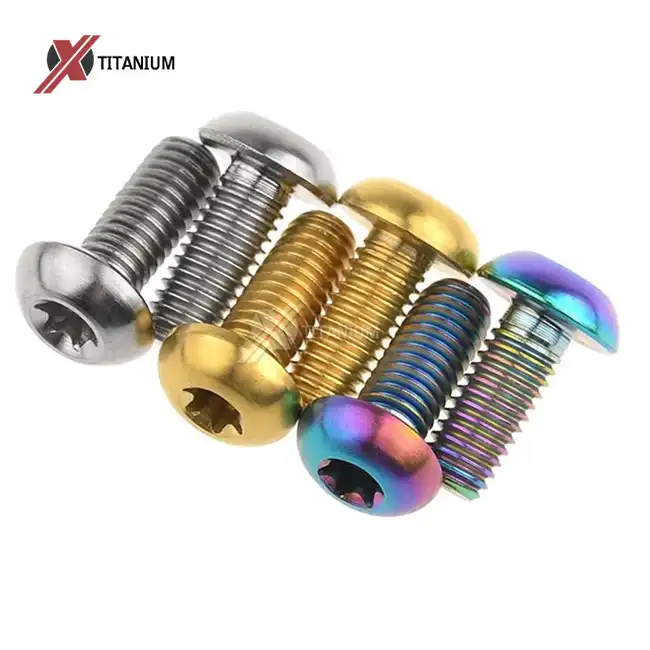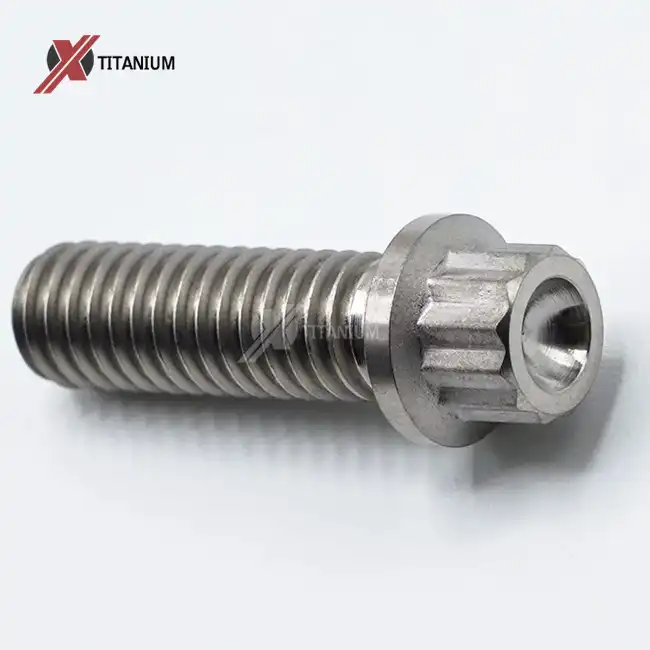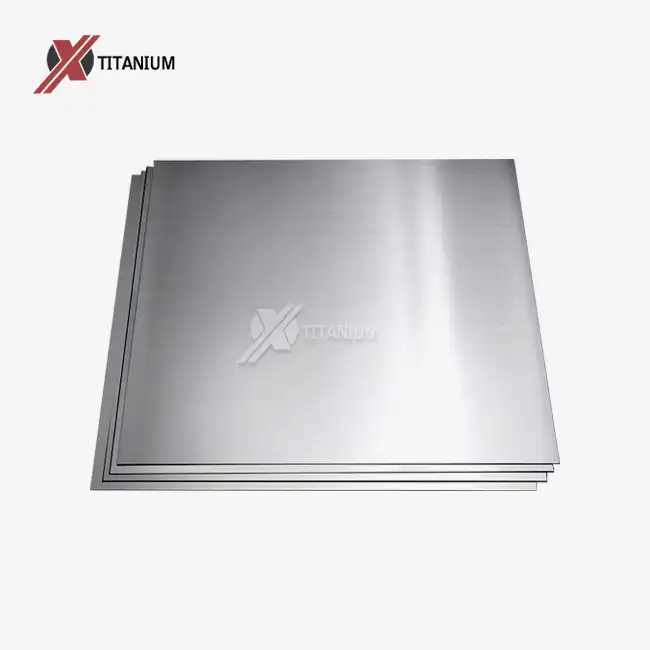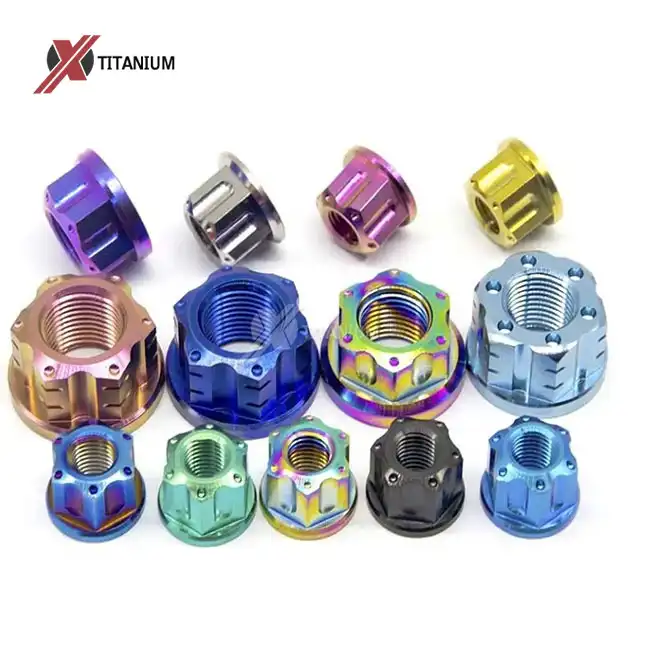Grasping Titanium Alloys and Their Impact on Hex Nut Strength
Titanium hex nuts derive their impressive tensile strength from the unique properties of titanium alloys. These alloys combine titanium with other elements to enhance specific characteristics, resulting in fasteners that excel in various demanding applications. Let's delve into the world of titanium alloys and explore how they influence the strength of hex nuts.
Common Titanium Alloys Used in Hex Nut Manufacturing
Several titanium alloys are frequently used in the production of high-strength hex nuts. The most common include:
- Grade 5 (Ti-6Al-4V): This popular alloy contains 6% aluminum and 4% vanadium, offering an excellent balance of strength, durability, and corrosion resistance.
- Grade 2 (Commercially Pure Titanium): While not as strong as Grade 5, it provides good corrosion resistance and is suitable for less demanding applications.
- Beta Titanium Alloys: These alloys offer even higher strength-to-weight ratios and are often used in aerospace applications.
Each alloy brings its own set of properties to titanium hex nuts, affecting their tensile strength, ductility, and overall performance. The choice of alloy depends on the specific requirements of the application, balancing factors such as strength, weight, and cost.
Factors Influencing Tensile Strength in Titanium Hex Nuts
Several factors contribute to the tensile strength of titanium hex nuts:
- Alloy Composition: The specific combination of elements in the titanium alloy plays a crucial role in determining its strength.
- Heat Treatment: Proper heat treatment processes can significantly enhance the mechanical properties of titanium alloys.
- Manufacturing Process: The method used to produce the hex nuts, such as CNC machining or forging, can impact their strength and quality.
- Surface Treatment: Treatments like anodizing or nitriding can improve surface hardness and wear resistance, indirectly affecting tensile strength.
Understanding these factors is essential for selecting the right titanium hex nuts for specific applications and ensuring optimal performance under various conditions.
Comparing Titanium Hex Nuts to Other Materials
To truly appreciate the strength of titanium hex nuts, it's helpful to compare them to fasteners made from other materials. This comparison not only highlights the unique properties of titanium but also aids in selecting the most appropriate fastener for specific applications.
Titanium vs. Steel Hex Nuts
Steel is a common material for hex nuts, known for its strength and affordability. However, titanium hex nuts offer several advantages:
- Higher Strength-to-Weight Ratio: Titanium hex nuts are approximately 45% lighter than steel nuts of equivalent strength, making them ideal for weight-sensitive applications.
- Superior Corrosion Resistance: Unlike steel, titanium naturally resists corrosion, even in harsh environments like saltwater.
- Temperature Resistance: Titanium maintains its strength over a wider temperature range (-250°C to 500°C) compared to many steel alloys.
While steel nuts may be more cost-effective for general use, titanium hex nuts excel in specialized applications where weight savings and corrosion resistance are critical.
Titanium vs. Aluminum Hex Nuts
Aluminum is another lightweight material often used for fasteners, but titanium hex nuts offer distinct advantages:
- Higher Strength: Titanium hex nuts typically have 2-3 times the tensile strength of aluminum nuts.
- Better Durability: Titanium is more resistant to wear and fatigue than aluminum, ensuring longer-lasting performance.
- Higher Temperature Resistance: Titanium retains its strength at higher temperatures compared to aluminum.
While aluminum nuts may be suitable for some lightweight applications, titanium hex nuts provide a superior combination of strength and weight reduction for demanding environments.
Applications and Industries Benefiting from High-Strength Titanium Hex Nuts
The exceptional tensile strength and unique properties of titanium hex nuts make them invaluable in various industries and applications. Let's explore some of the key sectors where these robust fasteners play a crucial role.
Aerospace and Aviation
The aerospace industry is perhaps the most prominent user of high-strength titanium hex nuts. In this sector, the combination of high tensile strength and low weight is paramount. Some specific applications include:
- Aircraft Engines: Titanium hex nuts are used in critical engine components where high temperatures and stresses are common.
- Structural Components: These fasteners are essential in joining various parts of the aircraft frame, where strength and weight savings are crucial.
- Satellite Systems: Space applications benefit from the high strength-to-weight ratio and corrosion resistance of titanium hex nuts.
The reliability and performance of titanium hex nuts in these high-stakes environments underscore their importance in ensuring the safety and efficiency of aerospace operations.
Marine and Offshore Industries
The corrosion-resistant properties of titanium make its hex nuts particularly valuable in marine environments. Key applications include:
- Underwater Equipment: Titanium hex nuts are used in deep-sea exploration vehicles and equipment, resisting corrosion from saltwater.
- Shipbuilding: These fasteners are employed in areas of ships exposed to harsh marine conditions.
- Offshore Oil and Gas Platforms: Titanium hex nuts provide durability and reliability in the challenging conditions of offshore operations.
The ability of titanium hex nuts to withstand corrosive environments while maintaining their strength makes them indispensable in these marine applications.
Medical and Biomedical Engineering
The biocompatibility of titanium, combined with its strength, makes titanium hex nuts valuable in medical applications:
- Prosthetics: These fasteners are used in the construction of advanced prosthetic limbs, providing strength without adding excessive weight.
- Surgical Equipment: Titanium hex nuts are employed in various medical devices and surgical tools, ensuring reliability and sterilization compatibility.
- Dental Implants: While not typically using hex nuts, the dental field benefits from titanium's properties in implant technology.
The use of titanium hex nuts in medical applications showcases their versatility beyond industrial uses, highlighting the material's unique combination of strength and biocompatibility.
Racing and High-Performance Vehicles
The automotive racing industry, where every gram counts, greatly benefits from the strength and lightweight properties of titanium hex nuts:
- Engine Components: High-strength titanium hex nuts are used in critical engine parts to withstand extreme temperatures and stresses.
- Suspension Systems: These fasteners provide reliable connections in suspension components, contributing to overall vehicle performance.
- Body and Chassis: Titanium hex nuts help reduce the overall weight of the vehicle while maintaining structural integrity.
In the competitive world of racing, the use of titanium hex nuts can provide that crucial edge in performance and reliability.
Conclusion
The impressive tensile strength of titanium hex nuts, combined with their lightweight properties and corrosion resistance, makes them indispensable in a wide range of high-performance applications. From aerospace to marine environments, and from medical devices to racing cars, these robust fasteners continue to play a crucial role in pushing the boundaries of engineering and design. As industries evolve and demand ever-higher performance standards, the importance of understanding and utilizing the unique properties of titanium hex nuts becomes increasingly significant.
For those seeking to leverage the exceptional qualities of titanium hex nuts in their projects or applications, it's essential to partner with experienced manufacturers who understand the intricacies of titanium alloys and fastener production. If you're interested in exploring how titanium hex nuts can benefit your specific needs or if you have any questions about their properties and applications, don't hesitate to reach out to industry experts. You can contact us at info@cltifastener.com or djy6580@aliyun.com for more information or to discuss your titanium fastener requirements.
